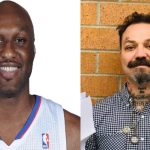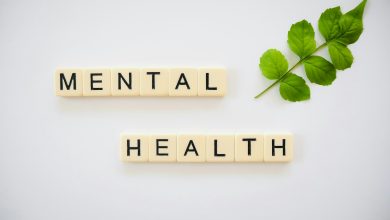A Friend’s Lifeline: Overcoming Vicodin and Lortabs Addiction

My journey through addiction was a perilous one, marked by moments of weakness and a seemingly insatiable craving for various substances. It was a struggle that often went unnoticed in the midst of a chaotic party scene in my early twenties.
I found myself ensnared by the allure of hydrocodones, Lortabs, and Vicodin, all too eager to feed my cravings. The clandestine nature of my addiction allowed me to indulge without drawing too much attention. I resorted to selling my possessions to maintain my drug supply, paying around $4 per pill to a dealer. My daily routine consisted of waking up, popping pills until a party started, continuing to dose throughout the festivities, and eventually collapsing into fitful slumber. This monotonous cycle persisted, lathered, rinsed, and repeated until it had become my mundane existence.
Seeking an escape from this destructive lifestyle, I embarked on a journey in search of peace, finding refuge in a ski resort in the company of Argentinian roommates. The change of scenery offered a temporary respite, but the season eventually ended, leaving me with an uncertain future. I hastily ran off to Hawaii with a girl I barely knew, only to discover that the paradise I sought remained elusive. The relationship soured, leading me back to my parents’ home for a period of introspection.
During this time, I battled insomnia and was prescribed Ambien, which cast a fog over the two months I spent living with my parents. As my insomnia worsened, I increased my Ambien dosage, which proved to be a perilous decision. The drug’s diminishing effectiveness left me with despair, contemplating suicide as my only escape.
It was in this dark moment that I confided in a friend, who rescued me from the abyss. I found refuge in his home, resuming my education by returning to college. However, the demands of a Biology major felt ill-suited to my needs, leading me to resort to Adderall as a means to cope with academic pressures. This choice spiraled into a years-long addiction, as I found myself constantly craving the next dose, mentally preparing myself mere minutes after taking the last pill.
Unable to maintain this unsustainable lifestyle with a legitimate prescription, I resorted to obtaining Ritalin and additional Adderall from various sources. The cost of this habit was steep, both financially and mentally, as I became aware that it was detrimentally affecting my cognitive function. Learning of the neurotoxicity associated with Adderall further fueled my decision to break free from its grip.
My battle with addiction extended to marijuana and alcohol, with moderation being a foreign concept during these phases. Yet, amidst the tumultuous journey, I’ve managed to find sobriety. It’s been a few months since I completely abstained from substances, and I’ve been free from Adderall for about eight months. Although I can’t deny a lingering sense of cognitive deficit, I’ve managed to replace my addiction with a newfound passion for exercise, an endeavor I’m told is a healthier alternative.
Despite the setbacks and the feeling that I’m playing catch-up, I’m on the verge of graduating college at the age of 26. Many perceive me as having my life together, though I still grapple with uncertainty. The TL;DR of my experience as a drug addict is that it was uninteresting, hindered personal development, and became a mind-numbing habit that led me southward rather than forward.
In the end, I’ve discovered that life without the shadow of addiction holds its own unique challenges, but it offers the potential for growth, recovery, and the pursuit of a brighter future.
Each day, thousands of students find themselves entangled in the treacherous web of substance abuse, a perilous journey that can have profound and far-reaching consequences. For many young individuals, the allure of drugs presents itself in various forms, often disguising the underlying struggles they may be facing in their lives.
The pressures of academia, social dynamics, and the ever-increasing demands of modern life can drive some students to seek refuge in the temporary relief offered by drugs. What begins as an attempt to cope with stress, anxiety, or peer pressures can quickly escalate into a full-blown addiction, leading to a cycle of dependency that threatens not only their academic success but also their overall well-being.
The transition from occasional use to habitual abuse can happen imperceptibly, and students may find themselves relying on substances to navigate the challenges of daily life. From stimulants like Adderall taken to stay awake during late-night study sessions to self-medication with alcohol or marijuana to cope with emotional turmoil, the reasons behind drug use among students are as diverse as the individuals themselves.
The consequences of drug addiction among students are multifaceted. It can disrupt their academic performance, leading to failing grades, missed classes, and a compromised future. Beyond the classroom, addiction can strain relationships with friends and family, isolate individuals from their support networks, and erode their physical and mental health.
However, it’s important to recognize that addiction is not an irreversible fate. With the right support, resources, and intervention, students can break free from the cycle of substance abuse and embark on a path of recovery. Education about the risks of drug use, open conversations, and destigmatizing addiction are crucial steps in helping students seek help and find the strength to confront their struggles.
Ultimately, the journey toward recovery is a challenging one, but it is also a path to rediscovering one’s potential, regaining control of one’s life, and pursuing a brighter and healthier future. By addressing the issue of substance abuse among students with empathy, understanding, and effective intervention, we can help turn the tide and ensure that more young individuals find the support and resources they need to overcome the scourge of addiction.





